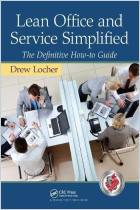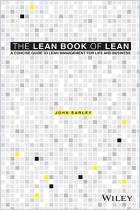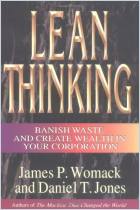Melden Sie sich bei getAbstract an, um die Zusammenfassung zu erhalten.

Melden Sie sich bei getAbstract an, um die Zusammenfassung zu erhalten.
Paul A. Akers
2 Second Lean
How to Grow People and Build a Fun Lean Culture at Work & at Home
Fastcap Press, 2014
Was ist drin?
Entrepreneur and business writer Paul A. Akers shows how to transform your company’s culture using “2 Second Lean.”
Recommendation
Entrepreneur and business writer Paul A. Akers narrates from his hands-on experience as he transforms his business into a “2 Second Lean” (his trademarked term) culture. His short manual bursts with enthusiasm and uses real-life pictures that show the before and after stages of his company’s Lean changes. Akers draws heavily from his leadership experience at FastCap LLC. He avoids manufacturing jargon and complex theory in this chatty, personal, humorous account. getAbstract recommends most of his suggestions to start-ups, business owners, shop floor staff and anyone seeking to optimize their business processes.
Summary
About the Author
Founder and owner of FastCap LLC, Paul A. Akers is an Extreme Lean enthusiast and hosts the radio show, “The American Innovator.”






















Comment on this summary